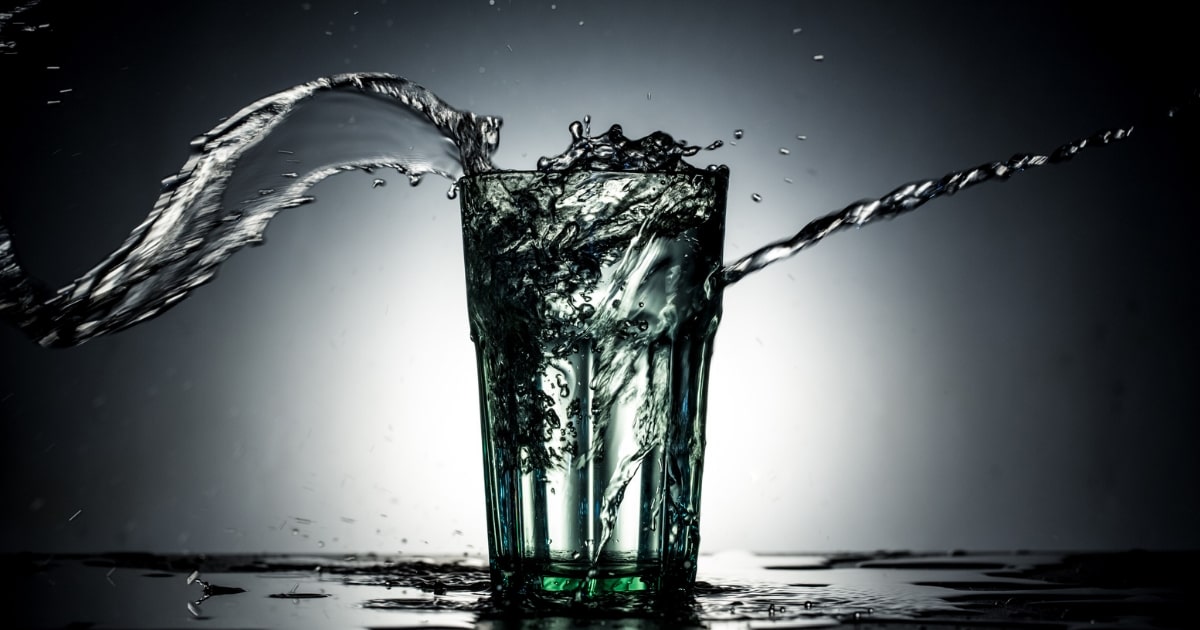Water is essential for life to exist. However, given the right conditions, water can be just as lethal as any poisonous substance.
Every cell in the body requires water. But too much water can cause water intoxication and serious health issues. It’s rare to overhydrate accidentally, but it happens, usually during sports or intense training.

What is water intoxication?
Water intoxication, also called water poisoning, is a brain disorder caused by drinking too much water. Too much water in the cells (including brain cells) causes swelling. When brain cells swell, they may cause pressure in the brain. You may develop confusion, drowsiness, and headaches. Hypertension (High Blood Pressure) and bradycardia (Slow Heartbeat) can occur if this pressure increases.
Overhydration can lead to hyponatremia. Sodium is an essential nutrient for maintaining cell fluid balance. When its levels drop due to the body’s high water content, fluids enter cells. Then the cells swell, putting you at risk of seizures, coma, or death.
What are the symptoms of water intoxication?
Water intoxication symptoms tend to start appearing after you consume more than 3 to 4 L of water in a few hours. The initial signs of water intoxication are:
- Headaches
- Nausea / vomiting
Severe water intoxication might cause dangerous symptoms like:
- Drowsiness
- Muscular ache
- Hypertension
- Double vision
- Confusion
- Incapacity to recognize sensory data
- Difficulty in breathing
It could also lead to cerebral edema, an accumulation of fluid in the brain. This can damage the brain stem and induce CNS dysfunction.
Seizures, brain damage, coma, and even death can result from water intoxication.
How to know if you’re drinking too much water?
1. The color of your urine
The color of your urine is one of the best indicators of hydration. It is usually pale yellow to tea-colored due to the urochrome pigment and water content in your body. If your pee is often clear, you’re consuming too much water too quickly.
2. Too many bathroom trips
Another sign is urinating more than usual. You should urinate 6-8 times per day. People who regularly consume caffeine or alcohol may go up to ten times.
3. Drinking water even when you’re not thirsty
Third, be mindful of your body’s requirements. The body can prevent dehydration by signaling you to drink water. In response to dehydration, your body will become thirsty.
4. Discoloration of the hands, feet, and lips
Overhydrated feet, hands, and lips may enlarge or discolor. This is because the skin swells with the cells.
5. Tiredness or fatigue
Intake of too much water causes renal overload. As a result, you feel tired and exhausted. Your kidneys are overworked if you can’t get up after drinking too much water.
How much water should you drink in a day?
According to the Centers for Disease Control and Prevention (CDC), there are no standard daily water requirements. How much water your body needs depends on your physical activity levels, climate, body weight, sex.
The National Academy of Medicine advised women aged 19–30 to drink 2.7 liters per day and men aged 19–30 to drink 3.7 liters per day.
The amount of water is not the only factor but also how much you quickly consume it. The kidneys can eliminate 20–28 liters of water per day, but only 0.8–1.0 liters per hour. To avoid hyponatremia, don’t consume more water faster than your kidneys can eliminate.
Some still adhere to the 8/8 rule, which suggests eight 8-ounce glasses of water per day. But it wasn’t based on research.
If you or someone else has symptoms of water intoxication, such as convulsions or drowsiness, get medical assistance right away.





